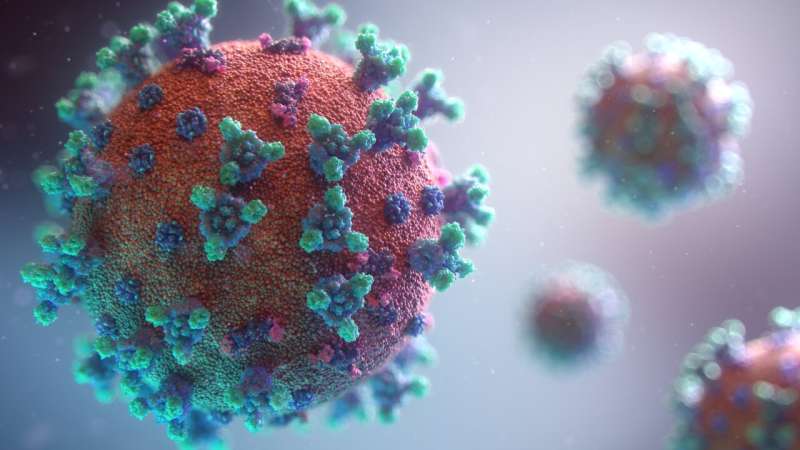This article has been reviewed according to Science X's editorial process and policies. Editors have highlighted the following attributes while ensuring the content's credibility:
fact-checked
trusted source
proofread
Study identifies features of Long COVID neurological symptoms

Twelve people with persistent neurological symptoms after SARS-CoV-2 infection were intensely studied at the National Institutes of Health (NIH) and were found to have differences in their immune cell profiles and autonomic dysfunction. These data inform future studies to help explain persistent neurological symptoms in Long COVID. The findings, published in Neurology: Neuroimmunology & Neuroinflammation, may lead to better diagnoses and new treatments.
People with post-acute sequelae of COVID-19 (PASC), which includes Long COVID, have a wide range of symptoms, including fatigue, shortness of breath, fever, headaches, sleep disturbances, and "brain fog," or cognitive impairment. Such symptoms can last for months or longer after an initial SARS-CoV-2 infection. Fatigue and "brain fog" are among the most common and debilitating symptoms, and likely stem from nervous system dysfunction.
Researchers used an approach called deep phenotyping to closely examine the clinical and biological features of Long COVID in 12 people who had long-lasting, disabling neurological symptoms after COVID-19. Most participants had mild symptoms during their acute infection. At the NIH Clinical Center, participants underwent comprehensive testing, which included a clinical exam, questionnaires, advanced brain imaging, blood and cerebrospinal fluid tests, and autonomic function tests.
The results showed that people with Long COVID had lower levels of CD4+ and CD8+ T cells—immune cells involved in coordinating the immune system's response to viruses—compared to healthy controls. Researchers also found increases in the numbers of B cells and other types of immune cells, suggesting that immune dysregulation may play a role in mediating Long COVID.
Consistent with recent studies, people with Long COVID also had problems with their autonomic nervous system, which controls unconscious functions of the body such as breathing, heart rate, and blood pressure. Autonomic testing showed abnormalities in control of vascular tone, heart rate, and blood pressure with a change in posture. More research is needed to determine if these changes are related to fatigue, cognitive difficulties, and other lingering symptoms.
Taken together, the findings add to growing evidence that widespread immunological and autonomic nervous system changes may contribute to Long COVID. The results may help researchers better characterize the condition and explore possible therapeutic strategies, such as immunotherapy.
More information: Yair Mina et al, Deep Phenotyping of Neurologic Postacute Sequelae of SARS-CoV-2 Infection, Neurology—Neuroimmunology Neuroinflammation (2023). DOI: 10.1212/NXI.0000000000200097





















